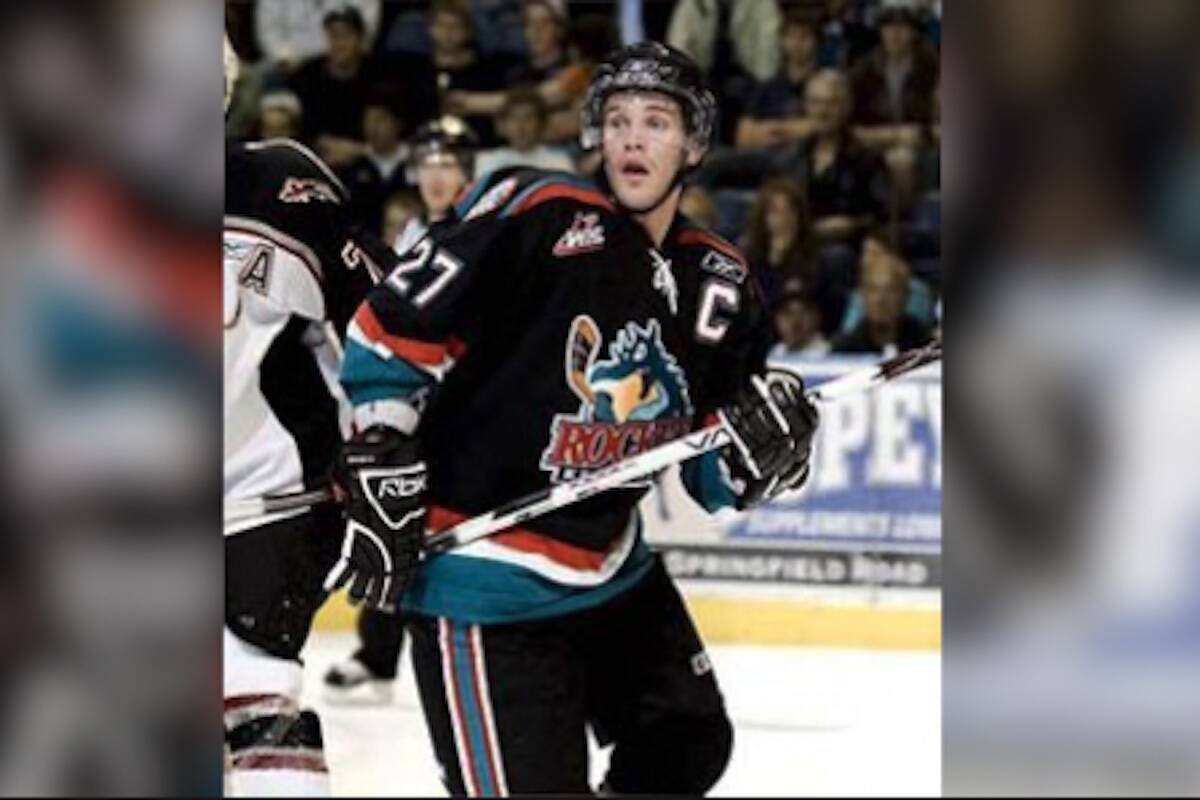In hockey, there aren’t as many fights or big hits as there used to be. Players are way more cautious of safety and so are the leagues. But the situation appeared a bit different 15 years ago and a former Kelowna Rocket captain is looking for justice.
James McEwan, who played four years in the Western Hockey League (WHL), is suing the league, along with the Canadian Hockey League (CHL) and Hockey Canada for promoting fighting and violence during his playing days. The CHL is an umbrella for the WHL, along with the Ontario Hockey League (OHL) and Quebec Major Junior Hockey League (QMJHL).
The claim began in B.C. provincial court in 2019 when McEwan filed a legal suit. In November 2021, the case moved to B.C. Supreme Court. Two doctors are supporting McEwan’s certification application: Dr. Virji-Babul, a physical therapist and neuroscientist at the University of British Columbia (UBC) and Dr. Skye Arthur-Banning who is a professor within the Department of Parks, Recreation and Tourism Management at Clemson University in South Carolina.
McEwan was an enforcer throughout his four-year career where he played with the Seattle Thunderbirds and Kelowna Rockets. When he got offered a tryout and made the Thunderbirds as a 17-year-old, he says he was “trained and encouraged to be an enforcer on the team, a role he believed he fulfilled from that time forward.” In 208 career games, he was involved in more than 70 fights and totalled 540 penalty minutes. He claims he would not have taken part in so many fights if he had known the ramifications it would take on his long-term health including side effects and complications.
One of the allegations that his suit claims are that “it had been known for decades that multiple blows to the head can lead to long-term brain injury including memory loss, dementia, depression and related symptoms. It can also lead to chronic traumatic encephalopathy (“CTE”), which is a catastrophic disease that was long associated only with boxing. CTE, until recently, could only be confirmed through an autopsy.”
During his second year with Seattle as an 18-year-old (2005-06), McEwan deposed that he began to experience ringing in his ears and often had visionary issues and dizzy spells after fights but never got medical attention and would continue to play. Sometimes he would have fainting spells as well, including once losing consciousness in a parking lot after a game.
When he joined the Rockets, McEwan began to experience mood swings, anxiety, angry outbursts, and behavioural changes. He was also in constant pain and episodes of cloudiness and blurry vision continued. To cope with the pain, McEwan turned to pain medications and alcohol.
McEwan is seeking damages because of the long-term effects of his career, including multiple injuries both physical and psychological and for past and future loss of income. He is also supported in court by affidavits from Myles Stoesz, Rhett Trombley, and Eric Rylands, who also played in the leagues.
Stoesz played for the Spokane Chiefs and accumulated more than 800 penalty minutes in his career. He tried out for the team when he was 15 years old but was too young to play. He was invited back for the next season and “knew [he] was expected to fight. The now 35-year-old claimed he “literally fought [his] way onto the team,” and received boxer lessons as part of his team training.
Trombley started his career at 16 years old in 1991. He said he was “essentially a boxer on ice” as he took part in 80 to 100 fights that totalled more than 500 penalty minutes. After fights, he barely received medical treatment from team doctors, even when he had more serious injuries including a broken orbital bone.
In the latest hearing on June 30, Justice Neena Sharma tended to agree with the plaintiff she dismissed several pieces of evidence before it was presented as it was deemed irrelevant or hearsay. Justice Sharma went through the more than 22,000-word decision, breaking down all the affidavits and while the hockey league argued evidence is “not reliable and is irrelevant”. Included in that was the league claiming Dr. Arthur-Banning has a “lack of qualifications”.
Sharma disagreed by saying “His area of academic study, publication and teaching focuses on amateur sport management. Studying sports management necessarily includes a consideration of policies and practices. I am satisfied that is clearly and logically linked to issues raised by the pleadings, mainly the nature and scope of the duty and standard of care of organizations that operate amateur sports leagues.”
The case is to continue throughout the courts.
READ MORE: Kelowna Rockets ‘breakaway’ from AM 1150 and score a new home on the airwaves
READ MORE: Celebration of life for Kelowna flood victim
@cunninghamjordy
jordy.cunningham@kelownacapnews.com
Like us on Facebook and follow us on Twitter.
BC Supreme CourtCanadaCanadianCourtHockeyKelownaKelowna RocketsOn-ice violenceWestern Hockey LeagueWHL

